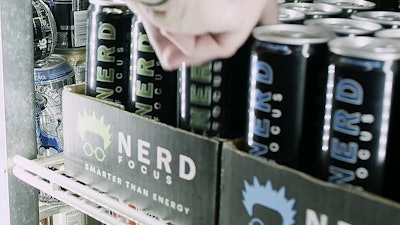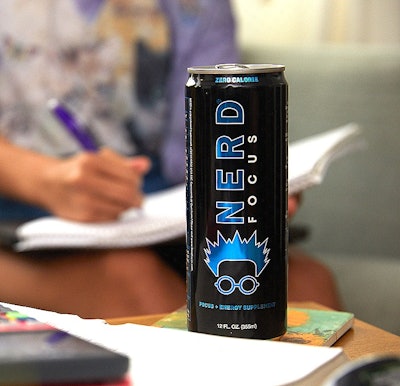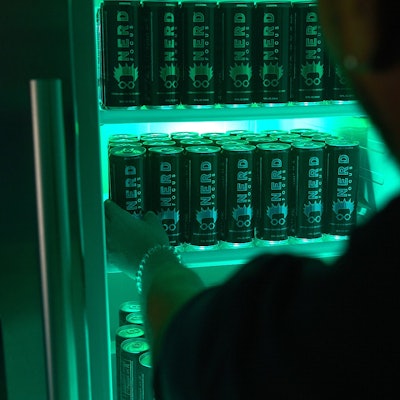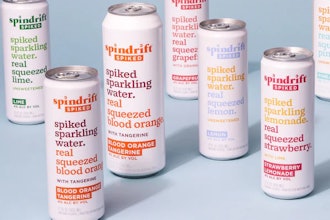
The United States is facing an energy crisis. I'm not talking about the national power grid or running out of fossil fuels. I'm talking about energy drinks.
According to Statista, US energy drink sales were $2.8 billion, and surged to $3.7 billion in 2020 — a 32 percent rise in just five years. Market research provider T4 said that the 2020 US energy drink market was valued at $61 billion, is expected to grow by 7 percent in 2021 and reach $86 billion in 2025.
But that rapid rise has also led to worsening America's caffeine addiction. In a 2018 post on Scientific American, a science writer noted that 90 percent of Americans consumer caffeine daily, with an average dose of 200 milligrams — the equivalent of two cups of coffee or five caffeinated soft drinks. Some medical authorities, including the World Health Organization, classify caffeine as an addictive substance, and it's the world's most popular drug.
With those disclaimers said, it's a great time to be a leading energy drink provider. Still, with RedBull, Rockstar and Monster dominating the market, it's a tough market to stand out in. That factor, plus the increase of more health-conscious consumers has led to the growing popularity of nootropics — beverages that rely on natural supplements to improve a consumer's functionality.
 NERD Focus
NERD Focus
A decade later, NERD was acquired by Beverage USA Holdings (BevUSA), which plans to grow the brand to achieving $7-10 million in revenue by 2022.
Food Manufacturing recently spoke with BevUSA CEO Howard Davner to get his thoughts on caffeine consumption in the US, the growth of healthier-alternatives in the energy drink market and what the future holds for NERD Focus.
Food Manufacturing: Obviously, the US is addicted to caffeine. It's consumers' go-to pick-me-up stimulant whenever they're dragging or starting their day. And while I'm no health expert, I have to assume the average American is consuming far more caffeine than they need. What are your thoughts on the state of caffeine consumption in the United States, especially in the form of energy drinks/energy shots (a.k.a. 5-Hour Energy)?
Howard Davner: Caffeine is one of the strongest and most widely used nootropics of all time. When consumed in moderation, the benefits of speeding up reaction time and energy can be part of a completely healthy diet. The FDA has cited that an intake of less than 400 milligrams of caffeine a day will not negatively affect most healthy adults – which is equivalent to roughly two to three energy drinks or four cups of coffee. Most Americans in the US will fall into this category, even with caffeine-infused foods and drinks so accessible. I only see the American caffeine consumption to be a problem when users start to abuse its benefits by replacing sleep and exercise with these quick fixes. Whether it be energy shots, energy drinks or coffee, users should always look at the caffeine level and understand that each individual has different sensitivities to this nootropic. Energy shots and similar products can be misleading since they are in small packages, which demonstrates the importance of always knowing how much caffeine you’re consuming and never exceeding a daily recommended dose.
Food Manufacturing: As consumers have grown more health-conscious over the past decade, their beverage choices have followed suit, paving the way toward more 'natural' beverage options like Kombucha, teas and coconut water. Do you see this trend continuing and/or accelerating?
Davner: Absolutely. The beverage industry in general has been growing exponentially over the past several years with the forecast continuing to project upwards. As the industry grows along with the demand for companies to be more transparent, consumers were given the unique advantage of learning what was going into their drinks and educating themselves on what ingredients are better than others. As this trend started, the industry needed to shift completely to appeal to all demographics. By introducing drinks such as NERD Focus that use vitamins and plant-based ingredients, the industry saw the growth and has been responding to it positively. In order to continue this cycle of growth, companies will need to adapt and have different options. The younger generations in particular are being taught in their education the importance of healthy diets and are exposed to a plethora of information on these topics and ingredients thanks to social media. For this reason, I see the demand and supply for healthier drinks accelerating.
 NERD Focus
NERD Focus
Davner: Nootropics are natural supplements that are aimed at helping improve cognitive function, memory, energy, motivation, and more – the most notable one being caffeine. Ultimately, they are added to beverages to provide users with a sense of fulfilment, whether that’s feeling more energized, focused, having an improved memory, etc. Many nootropics can also enhance overall brain health. Take Huperzine A for example – we use this in NERD Focus as it has been shown in studies to improve memory and learning from both young students to seniors. Recent research in particular shows that it improves memory and slows cognitive decline by increasing levels of acetylcholine, the compound that acts as a neurotransmitter in the brain. In layman’s terms, nootropics can be thought of as plant-based ingredients that stimulate certain brain function.
Food Manufacturing: Given consumers' relentless demand for energy beverages while also trending toward more healthy options, it seems conditions are currently right for new market entrants that can offer the best of both worlds. In a nutshell, how has the public reception to Nerd Focus been since its distribution began ramping up at the end of 2020?
Davner: I agree — everyone around the world right now has had to shift their everyday routine, messing with their mental and physical energy tremendously. Essential workers are working around the clock to deliver vaccines and transport goods, parents are balancing their own work and their kids work all from under one roof, students are adapting to virtual learning, and 9-to-5 workers have had to learn to find work-life balance when their office is also their bedroom. This change has caused a dramatic spike in demand for much-needed energy (whether that be through coffee, supplements or energy drinks) while still having that desire to choose healthier ways of obtaining that energy. NERD Focus has met both of those demands, so 2020 was actually a big year for us. NERD Focus first started in Texas, with local availability in a range of large grocery stores and small convenient stores. This past year, we also expanded our local availability in stores across New Jersey, Nashville, Las Vegas and most recently Wisconsin after seeing much success across Texas. To keep up with more widespread demand, we also launched our online marketplace to be able to distribute to consumers across the nation. We also have exciting partnerships coming down the pipeline with large distributors and delivery services.
Food Manufacturing: Between Nerd Focus original and Zero-Calorie, is one substantially more popular than the other? I prefer Zero-Calorie just for the added health benefit, but I'm not sure if the general young person feels the same way.
Davner: It depends on demographics and age. Younger customers like the original and the older or more health-conscious prefer the Zero Calorie!
Food Manufacturing: Nerd Focus' initial market appears to be cities with a young population and college towns. Do you see Gen-Z as the key demographic, or does it include Millennials as well?
Davner: Gen Z is definitely a key demographic for us since they have such a demand for added energy and concentration. Often times these students have seven or so different classes with conflicting test schedules that can lead to late nights and cram sessions. In addition, balancing internships/jobs, athletics/fitness, hobbies and social obligations (once the pandemic is over) can leave students in particular with extremely busy schedules. Having a vitamin-based drink such as NERD Focus to help focus that energy and concentration where needed can be very beneficial for this group of individuals. That said, as I mentioned above everyone around the world has had drastic life changes that have led to a desire to re-focus mental and physical energy. So, while Gen-Z and college students are largely our key demographic, Millennials and all other generations have also been thought of as potential buyers for us.






















